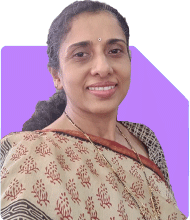Hi sir myself Asif 27 years age my salary is 50k monthly in my salary I used to give 20k to my father every month my expenses is around 6k till now my savings is around 1.50lack in savings account and around 1 lakh I have invested in stocks which is now 1lakh 20k I have not invested in mutual funds till now not started suggest me some good mutual funds for a long term of 10years sir and how much should I invest and in which mutal funds and give me a plan of investing for 10years from here thank you sir
Ans: Asif, at 27 years old, you are in a very promising financial situation. With a salary of Rs 50,000 per month and disciplined financial habits, you’re already making important steps towards building wealth.
You’re supporting your father by contributing Rs 20,000 per month, maintaining low personal expenses at Rs 6,000, and you’ve accumulated Rs 1.50 lakh in savings. Additionally, your stock investment of Rs 1 lakh has grown to Rs 1.20 lakh, showing that you are willing to take calculated risks. However, you’ve mentioned that you haven’t yet explored mutual funds. Given your long-term goal of investing for 10 years, we’ll focus on how mutual funds can help you build a strong portfolio while maintaining a balanced risk approach.
Let’s explore a detailed 10-year investment strategy through mutual funds that will not only help you achieve your financial goals but also protect you from market volatility.
Understanding the Importance of Diversification
Before diving into mutual fund recommendations, let’s talk about why diversification is important.
Diversification simply means spreading your investments across different assets or sectors. In your case, it would involve spreading your investments across large-cap, mid-cap, small-cap, and multi-cap/flexi-cap mutual funds. This approach reduces risk while maximising returns by tapping into multiple sectors of the market.
Currently, you have Rs 1.20 lakh in stock market investments. While direct stocks can provide good returns, they can be volatile, and managing them requires time and expertise. Mutual funds, managed by experienced fund managers, allow you to invest in a basket of stocks, reducing risk and saving you from the hassle of individual stock selection.
Savings and Investment Potential
Now, let’s look at your savings potential.
Monthly Salary: Rs 50,000
Monthly Contribution to Father: Rs 20,000
Monthly Expenses: Rs 6,000
After accounting for these commitments, you’re left with around Rs 24,000 per month in disposable income. Ideally, a portion of this should go into savings and investments. Based on your current situation, I recommend investing Rs 15,000 per month into mutual funds.
This allocation will allow you to maintain some liquidity while aggressively building a solid investment portfolio for the future.
Ideal Investment Strategy for the Next 10 Years
The key to building wealth is consistent investing over time, with a focus on growth while managing risk. Since you are young and have a 10-year horizon, you can afford to take a balanced approach—investing in funds that offer high growth potential but also ensure some stability.
Step 1: Set a Monthly SIP Target
Given that you have Rs 24,000 left after expenses, I suggest starting with Rs 15,000 in monthly SIPs (Systematic Investment Plans). This will leave you with Rs 9,000 for other short-term savings or emergencies.
Step 2: Diversify Across Mutual Funds
Here’s a suggested allocation for your Rs 15,000 monthly SIP. These allocations are designed to balance growth with risk.
Large-Cap Mutual Fund: Rs 5,000 per month Large-cap funds invest in well-established companies with a proven track record. These companies tend to be more stable and less volatile, making them ideal for long-term investors who want to mitigate risk while still earning returns.
Mid-Cap Mutual Fund: Rs 4,000 per month Mid-cap funds invest in companies that are smaller than large-caps but still have significant growth potential. These companies have the potential to grow faster, though they are slightly riskier than large-cap stocks.
Small-Cap Mutual Fund: Rs 3,000 per month Small-cap funds target smaller companies with high growth potential. While these funds can be volatile, they also have the potential for significant gains over the long term. Since you have a 10-year horizon, you can afford to take on some risk with small-caps.
Multi-Cap/Flexi-Cap Fund: Rs 3,000 per month Multi-cap or flexi-cap funds invest across large-cap, mid-cap, and small-cap companies, providing diversification within a single fund. This category of funds adjusts to market conditions and balances growth with risk, making it an excellent choice for long-term wealth creation.
Step 3: Review and Adjust
Review your portfolio every 6 months: The financial market is dynamic, and mutual fund performance can vary. Reviewing your portfolio periodically ensures that your investments are aligned with your goals.
Increase SIP contributions yearly: As your income increases, you should aim to increase your SIP contributions by 10-15% each year. For example, if you are investing Rs 15,000 per month in Year 1, aim to increase it to Rs 16,500 in Year 2. This will significantly boost your corpus over time.
Why Avoid Index Funds
While index funds are often seen as low-cost investment options, they might not be the best fit for you in this situation. Index funds track the performance of market indices like the Nifty 50 or Sensex. The downside is that these funds cannot outperform the market—they simply follow it.
Actively managed funds, on the other hand, are managed by fund managers who make strategic decisions to beat the market and protect against downturns. Over the long term, actively managed funds have the potential to offer better returns compared to index funds. Hence, for a young investor like you with a 10-year horizon, actively managed funds are a better choice.
Long-Term Wealth Creation Through SIPs
SIPs are a powerful tool for long-term wealth creation. By investing regularly, you benefit from rupee cost averaging, which helps you buy more units when prices are low and fewer units when prices are high. Over time, this evens out the cost and increases your returns.
SIPs also benefit from compounding. The returns generated by your investment are reinvested, leading to exponential growth over time. Given your 10-year horizon, compounding can significantly enhance your wealth.
Additional Considerations for Financial Growth
1. Emergency Fund
Before diving fully into long-term investments, it’s crucial to set aside an emergency fund. This fund should cover at least 6 months’ worth of expenses. Based on your current monthly expenses (Rs 6,000), plus Rs 20,000 for your father, you should aim to save around Rs 1.5 lakh in a separate liquid fund or savings account.
This emergency fund will act as a financial cushion in case of unforeseen circumstances such as medical emergencies or temporary loss of income. With this safety net, you can invest confidently without worrying about liquidity.
2. Tax-Saving Instruments
Consider investing in tax-saving mutual funds like Equity Linked Savings Scheme (ELSS). ELSS funds allow you to claim deductions under Section 80C of the Income Tax Act, up to Rs 1.5 lakh per year. These funds come with a lock-in period of three years but offer both tax benefits and long-term capital appreciation.
3. Avoid Direct Mutual Funds
Direct mutual funds seem attractive because of their lower expense ratios. However, managing investments on your own can be challenging, especially when the market is volatile. A better approach is to go through regular plans by investing through a Certified Financial Planner (CFP) or a Mutual Fund Distributor (MFD). A professional can offer tailored advice, monitor your portfolio, and rebalance it periodically to ensure that it aligns with your goals.
4. Insurance Planning
At this stage, you haven’t mentioned any life or health insurance. It’s essential to get adequate term insurance and health insurance. Term insurance provides financial protection to your family in case of any unfortunate event. The policy coverage should be at least 10-15 times your annual income.
Health insurance is equally important. Given the rising cost of healthcare, a comprehensive health plan for yourself and your father is necessary. The premiums are relatively low at your age and will provide much-needed financial relief in case of medical emergencies.
Why Mutual Funds Work for Long-Term Goals
Professional Management:
Fund managers actively manage mutual funds, ensuring that your investments are strategically allocated to maximise returns.
Diversification:
Mutual funds spread your investment across a wide range of stocks and sectors, minimising the risk compared to direct stock investments.
Systematic Growth:
With SIPs, you can systematically invest small amounts every month, benefiting from rupee cost averaging and compounding.
Tax Efficiency:
Equity mutual funds held for more than a year enjoy favourable tax treatment, with long-term capital gains (LTCG) taxed at a lower rate.
Finally: A 360-Degree Approach to Wealth Building
Stick to your investment plan:
Consistency is key. Invest Rs 15,000 per month across diversified funds. Increase the amount by 10-15% each year.
Build an emergency fund:
Set aside Rs 1.5 lakh for emergencies. This will protect you from liquidity issues and provide peace of mind.
Review and rebalance:
Every 6 months, review your portfolio to ensure it aligns with your long-term goals.
Consider insurance:
Term insurance and health insurance are essential safeguards for both you and your family.
By following this 10-year plan, you will not only grow your wealth but also safeguard your financial future. Stick to disciplined investing, review regularly, and seek advice from a Certified Financial Planner to ensure that you are on track.
Best Regards,
K. Ramalingam, MBA, CFP,
Chief Financial Planner,
www.holisticinvestment.in
https://www.holisticinvestment.in/
https://www.youtube.com/@HolisticInvestment


























